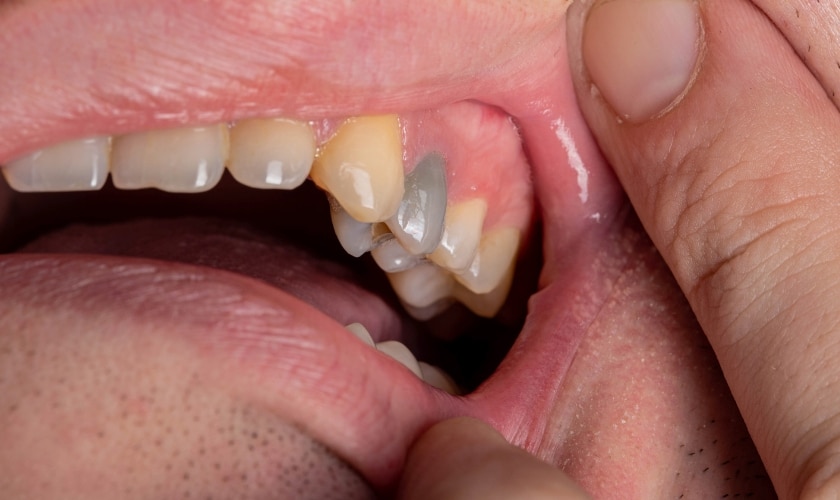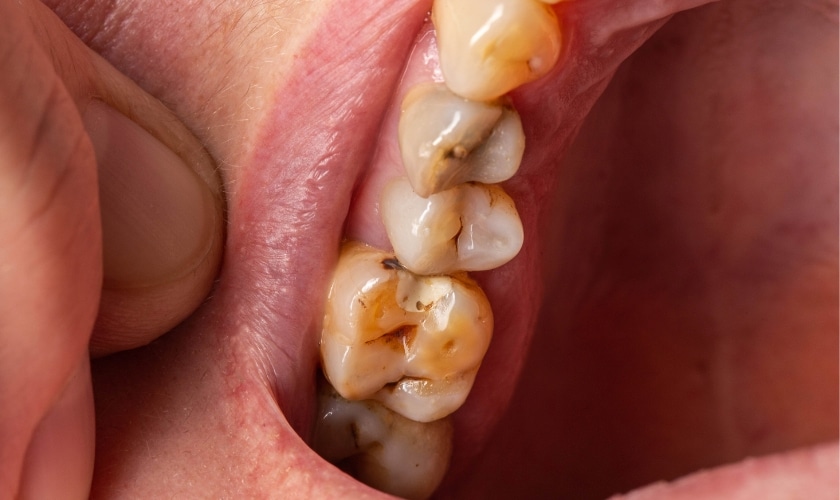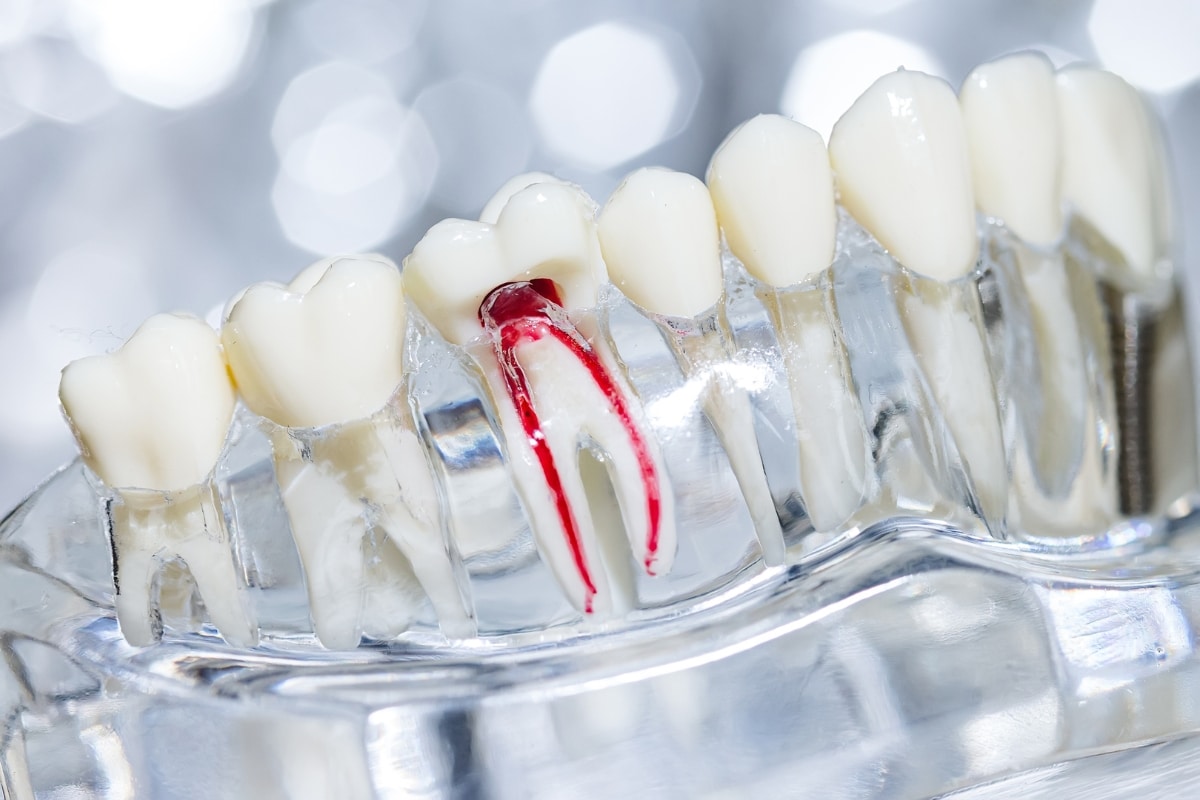
Is A Black Tooth An Emergency?
A black tooth can be a concerning issue that questions its severity and the necessary course of action. In this blog post, we will explore the causes, signs, symptoms, and potential risks associated with a black tooth. Additionally, we will discuss whether it is considered a dental emergency and provide you with actionable steps for immediate care and prevention.
Causes of a Black Tooth:
Several factors can contribute to the development of a black tooth:
- Dental Decay and Cavities: Poor oral hygiene or untreated cavities can lead to tooth discoloration, causing it to turn black.
- Tooth Trauma or Injury: A sudden impact or injury to the tooth can result in internal bleeding, leading to discoloration.
- Smoking or Tobacco Use: Prolonged tobacco use can stain the teeth, giving them a black appearance.
- Certain Medications or Medical Conditions: Some medications or medical conditions can cause changes in tooth color, resulting in a blackened tooth.
Signs And Symptoms:
Identifying the signs and symptoms associated with a black tooth is crucial.
- Discoloration of the Tooth: The affected tooth may turn black, gray, or brown, indicating underlying issues.
- Tooth Sensitivity or Pain: Increased sensitivity to hot or cold substances or persistent tooth pain may occur.
- Swelling or Inflammation: Sometimes, the area around the black tooth may become swollen or inflamed.
- Bad Breath or Unpleasant Taste: A foul smell or taste might indicate an infection or decay.
Understanding Dental Emergencies:
Definition of a dental emergency
A dental emergency refers to any situation that requires immediate professional attention to alleviate severe pain, prevent further damage, or save a tooth.
Common dental emergencies examples
Examples of common dental emergencies include severe toothaches, knocked-out teeth, broken or fractured teeth, severe gum swelling or bleeding, and injuries causing excessive bleeding.
Importance of prompt action in dental emergencies
Prompt action is crucial in dental emergencies to minimize pain, prevent complications, and increase the chances of successful treatment or tooth preservation. It is important to note that if you suspect a dental emergency, you should contact your dentist or seek immediate medical attention for proper evaluation and guidance.
Is A Black Tooth Considered An Emergency?
Explanation of the urgency and severity factors
The urgency of a black tooth as a dental emergency depends on several factors, including severe pain, swelling, or bleeding. These symptoms may indicate an underlying infection or injury that requires immediate attention.
Assessing the risk and potential complications
It is important to assess the risk associated with a black tooth. If left untreated, it can lead to further decay, infection, or even tooth loss. Additionally, untreated infections can spread to other body areas, causing more serious health issues.
The need for immediate dental attention
While not every case of a black tooth may be considered an emergency, it is recommended to seek immediate dental attention if there are accompanying severe symptoms or if the cause of the black tooth is unknown. A dentist can evaluate the situation, determine the underlying cause, and provide appropriate treatment.
It is always best to err on the side of caution and consult a dental professional to ensure proper diagnosis and timely treatment. Delaying treatment can lead to more extensive dental problems and complications.
Actions To Take:
Contacting a dentist for an emergency appointment
It is imperative that you see a dentist right away if you have a black tooth that is accompanied by excruciating pain, swelling, or bleeding, or if you suspect a dental emergency. Explain the situation and schedule an emergency appointment for prompt evaluation and treatment.
Proper at-home care for a black tooth
While waiting for your dental appointment, it is important to maintain good oral hygiene. Gently brush your teeth, including the affected tooth, using a soft-bristle toothbrush. Rinse your mouth with warm saltwater to help reduce inflammation and keep the area clean.
Avoiding self-diagnosis or treatment
Avoid self-diagnosis and the use of over-the-counter medications without seeking expert advice. Improper or delayed treatment can worsen the condition or lead to complications. Trust the expertise of a dentist to provide appropriate care.
Remember, seeking professional dental advice is essential to addressing the underlying cause of the black tooth and receiving appropriate treatment to prevent further damage or complications.
Prevention Tips:
Maintaining good oral hygiene practices
Clean your teeth at least twice a day using fluoride toothpaste and a soft-bristled toothbrush. Remember to floss daily to remove plaque and food particles between your teeth.
Regular dental check-ups and cleanings
Attend routine dental appointments every six months or as recommended by your dentist for optimal results. Regular check-ups allow for early detection of any dental issues, including potential causes of a black tooth, and professional cleanings help remove stubborn plaque and tartar buildup.
Quitting smoking or tobacco use
Tobacco use, including smoking and chewing tobacco, can contribute to tooth discoloration and other oral health problems. Quitting is essential not only for maintaining oral health but also for overall well-being.
Being cautious while engaging in physical activities
Wear protective gear, such as mouthguards, when participating in sports or activities that pose a risk of tooth trauma. This can help prevent injuries that may lead to a black tooth or other dental emergencies.
By following these prevention tips, you can minimize the risk of developing a black tooth and maintain optimal oral health. Remember, prevention is always better than dealing with dental emergencies or complications later on.
Navigating Tooth Troubles: Common Questions on Black Teeth Explained
1. Why does a tooth turn black, and is it an emergency?
There are several reasons why a tooth may become blackened, but the most frequent ones are trauma or extensive tooth decay. Bacteria can enter the tooth through decay, discoloring the tooth. Even though every situation is not an emergency, quick thinking is essential. Getting dental care right away aids in identifying the underlying issue and stopping more issues. The color black might also be a sign of internal injury, like a dead nerve, which calls for testing by a specialist. Recall that prompt treatment guarantees complete oral health and increases the likelihood of saving the tooth. For individualized treatment and advice, don’t wait to see your dentist if you discover a black tooth.
2. What steps can I take if I notice my tooth turning black?
It’s imperative that you act quickly if you notice your tooth becoming discolored. First of all, keep in mind that applying heat or cold directly to the afflicted tooth can make matters worse. Avoid attempting at-home treatments without first consulting a professional. Instead, make an appointment for an examination by calling your dentist right away. As you wait for your appointment, continue to practice proper oral hygiene by brushing and flossing on a regular basis. It is essential to seek prompt professional assistance in order to determine the cause of the discoloration and the best course of action to maintain the integrity and aesthetics of your teeth.
3. Are there home remedies for a dead black tooth, or should I seek professional help immediately?
A black tooth can indicate underlying dental issues, and it is important to understand the urgency and severity factors associated with it. While not every case of a black tooth may be considered a dental emergency, severe pain, swelling, or bleeding should prompt immediate attention from a dentist. Taking action, such as contacting a dentist in Riverside, CA for an emergency appointment and practicing proper at-home care, can help address the issue promptly. Prevention, through good oral hygiene practices, regular dental check-ups, quitting smoking or tobacco use, and being cautious during physical activities, is key to avoiding a black tooth and other dental problems. Prioritizing oral health and seeking professional dental advice when needed will ensure long-term oral well-being and overall health. Let’s make our oral health a priority and keep our smiles bright and healthy!





